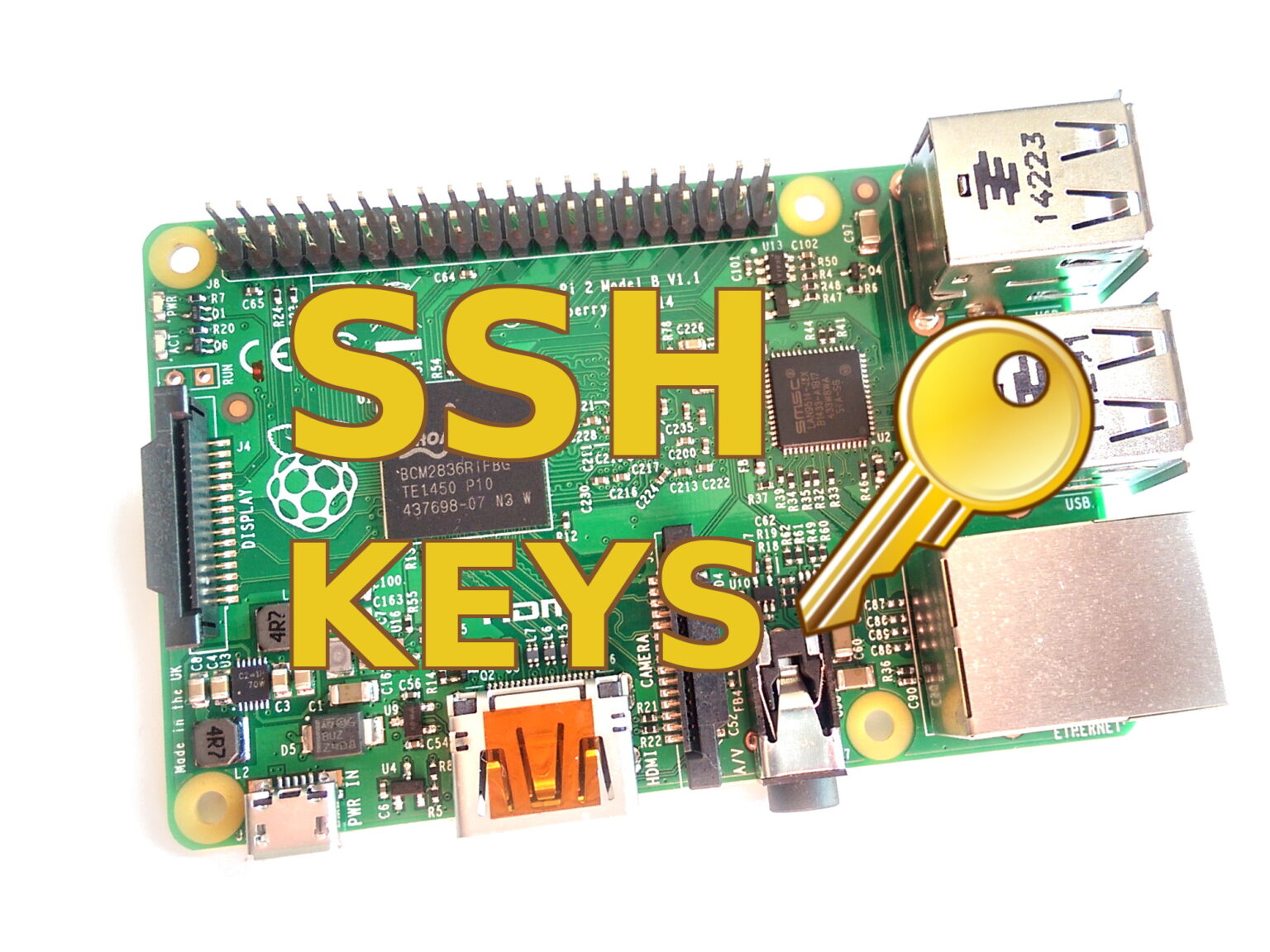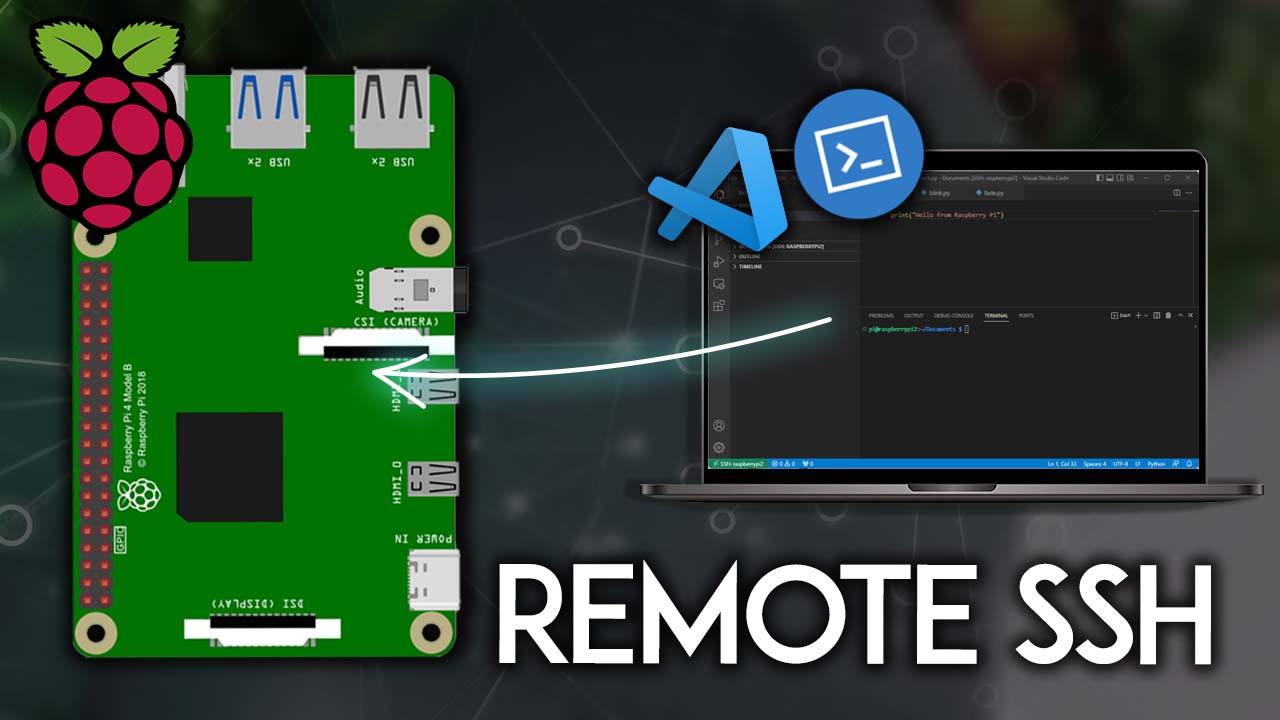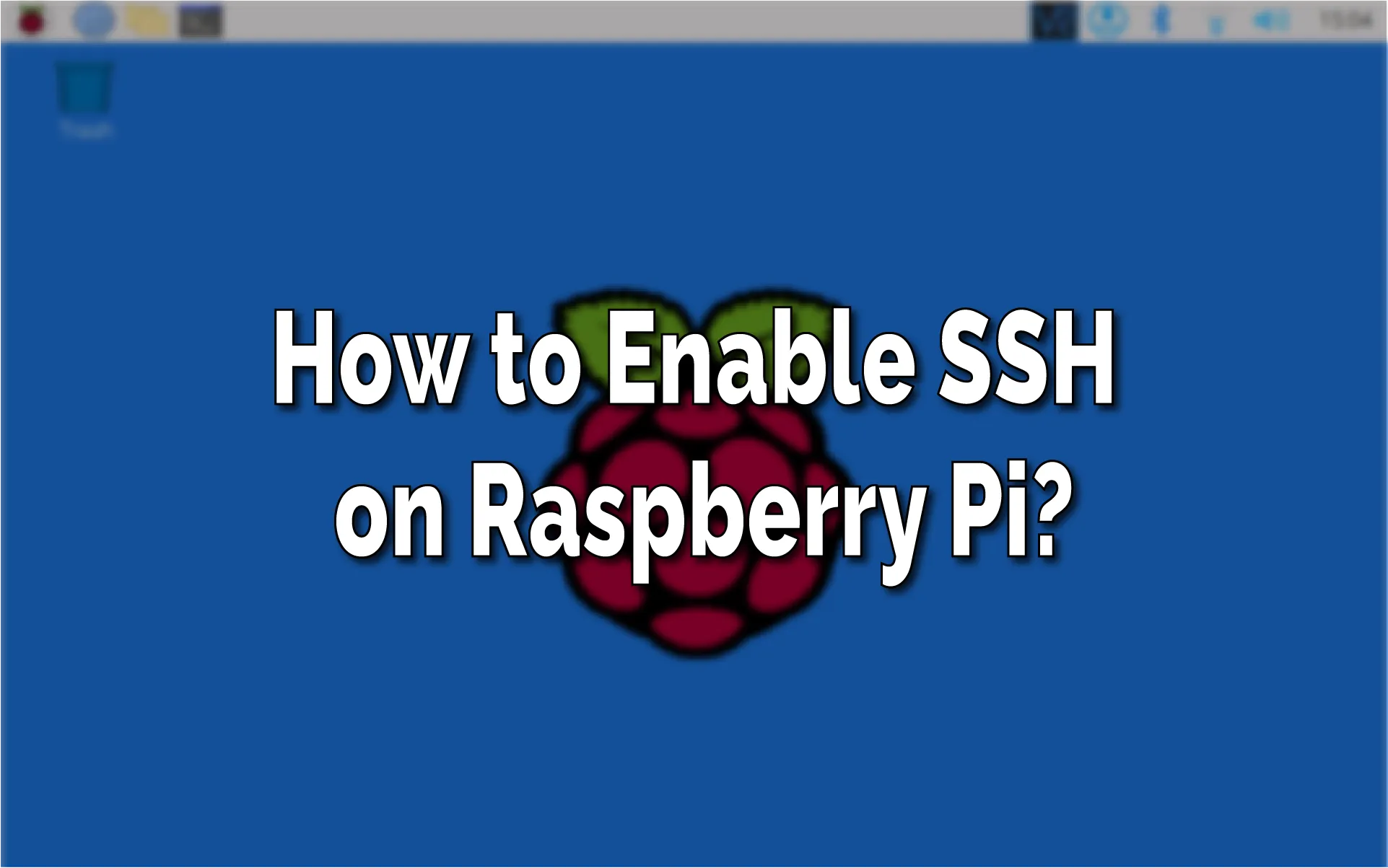Best Remote IoT Platform + SSH Keys For Raspberry Pi: Guide
Are you ready to unlock the full potential of your Internet of Things (IoT) projects while keeping your data secure? The convergence of Raspberry Pi, remote IoT platforms, and Secure Shell (SSH) keys is revolutionizing how we build and manage connected devices.
If you're diving headfirst into the world of IoT and Raspberry Pi, you're in the right place. The possibilities are vast, from home automation and environmental monitoring to industrial control and smart agriculture. But with these opportunities come significant security challenges. Managing these devices remotely and securely is paramount.
Today, were going to talk about the best remote IoT platform for managing SSH keys on your Raspberry Pi. Whether you're a hobbyist tinkering with a personal project or a professional deploying commercial solutions, securing your IoT devices is no longer optionalit's essential. Think of your Raspberry Pi as a tiny, powerful computer. Like any computer connected to the internet, it's vulnerable to cyber threats. Securing it is not just a good practice; it's a fundamental requirement for responsible IoT development.
Imagine this: Youve got a Raspberry Pi sitting on your desk, ready to take on the world of IoT. Perhaps it's collecting sensor data from your garden, controlling the lights in your home, or even monitoring the temperature in a remote location. You want to manage it remotely, to access the data, to update the software, and to troubleshoot any issues that might arise. You want to do all of this without compromising the security of your device or your network.
Setting up SSH key management on your Raspberry Pi might sound intimidating, but trust me, its not as hard as it seems. In fact, it's a crucial first step toward secure remote access. The process involves generating a pair of cryptographic keys, one private and one public. The private key remains securely on your local machine, while the public key is installed on your Raspberry Pi. When you attempt to connect to your Raspberry Pi remotely, your local machine uses the private key to authenticate itself, eliminating the need for passwords and significantly reducing the risk of unauthorized access.
When you pair Raspberry Pi with a remote IoT platform and SSH keys, youve got a powerhouse trio that can build secure IoT solutions that stand the test of time. The remote IoT platform provides the infrastructure for managing your devices, the SSH keys provide secure access, and your Raspberry Pi acts as the intelligent hub at the edge of your network. The combination of these technologies creates a robust, scalable, and secure platform for developing and deploying a wide range of IoT applications. This is the modern toolkit for IoT developers, combining ease of use with robust security features.
SSH, or Secure Shell, is a cryptographic network protocol designed to keep your communications safe over unsecured networks. It provides a secure channel over which you can remotely access and manage your Raspberry Pi. Instead of relying on easily guessable passwords, SSH uses sophisticated encryption and authentication methods, making it significantly more difficult for malicious actors to gain access to your devices. This is especially critical in the world of IoT, where devices are often deployed in environments that are physically vulnerable or exposed to the internet.
The integration of free SSH key management with a reliable remote IoT platform is not just beneficial; it's essential for modern developers and hobbyists. This synergy allows you to focus on the core functionality of your IoT projects, knowing that your remote access is secured. Many platforms offer free tiers, which are ideal for learning, experimentation, and small-scale projects. As your projects grow, you can typically upgrade to paid plans that offer additional features and support.
This article delves into the world of remote IoT platforms, specifically focusing on those that offer free SSH key integration for Raspberry Pi. We will examine the benefits of SSH key authentication, how to implement it, and how to choose the best platform for your needs. The remote IoT platform offers a robust solution by enabling SSH key management for Raspberry Pi devices. This ensures secure access and efficient remote management, which is crucial for developers and IT professionals.
The core advantage of using SSH keys for remote access is the enhanced security it provides. Password authentication can be vulnerable to brute-force attacks, where attackers try numerous password combinations until they find the correct one. SSH keys, however, utilize strong cryptographic algorithms, making it extremely difficult to compromise your system. Furthermore, SSH keys eliminate the need to remember and share passwords, reducing the risk of human error or social engineering attacks. The key-based authentication is simply more secure than password-based authentication.
Beyond security, SSH keys also simplify remote management. They enable automated scripting and remote command execution. You can update software, configure settings, and troubleshoot issues with a single command. This automation saves time, reduces the potential for manual errors, and allows you to scale your IoT deployments more easily. Imagine being able to deploy a software update to hundreds or even thousands of Raspberry Pi devices with a single script.
Are you looking for the best remote IoT platform that supports SSH key integration and works seamlessly with a Raspberry Pi at no extra cost? This guide will provide a comprehensive overview of the top platforms, comparing features, ease of use, and pricing. Well also explore practical steps for setting up SSH key authentication on your Raspberry Pi and integrating it with your chosen platform. The aim is to empower you to build secure and manageable IoT solutions with the tools you need.
We'll discuss the practical steps involved in setting up SSH key management. This typically involves generating an SSH key pair on your local machine, copying the public key to your Raspberry Pi, and configuring your SSH server to require key-based authentication. It's a straightforward process, and there are plenty of online resources to guide you through it. Remember, security is not an afterthought; it's an integral part of your IoT development process.
Once you have SSH key authentication enabled, you can leverage the power of a remote IoT platform to manage your Raspberry Pi devices more effectively. Many platforms offer features such as remote command execution, file transfer, device monitoring, and over-the-air (OTA) updates. These features streamline the development, deployment, and maintenance of your IoT projects, saving you time and effort. These are not just tools; they are the keys to building successful IoT projects.
Programming Raspberry Pi remotely using VS Code (Remote SSH) is also a popular technique. VS Code, a widely used code editor, provides an extension called Remote SSH that allows you to connect to your Raspberry Pi securely. This is a game-changer for developers, enabling you to write, edit, and debug code directly on your Raspberry Pi from the comfort of your local machine. You can use the familiar VS Code interface, making it easier to work with your projects.
The world of IoT has exploded in recent years, and finding the right tools is crucial to making your projects a success. The right remote IoT platform and SSH key management can make your development much smoother and much more secure. Whether you are working on a personal project or a commercial solution, the combination of a Raspberry Pi, an SSH key, and a reliable remote IoT platform gives you everything you need to succeed.
If you're looking for the best remote IoT platform that offers SSH key access without breaking the bank, especially when working with Raspberry Pi, you're in the right place. Free options abound, making robust security accessible to all. The platforms we discuss will offer the tools you need without requiring a huge financial investment. We are exploring those opportunities here.
The benefits of SSH key authentication extend beyond the individual device. When properly implemented, it enhances the overall security posture of your entire IoT deployment. By securing each device with SSH keys, you minimize the potential attack surface. A breach on a single device does not necessarily compromise the entire network. The result is a more secure and more resilient IoT solution.
Consider the scenario: A cybercriminal gains unauthorized access to a device. If you have implemented SSH keys, this breach can be contained. They will not be able to access other devices on the network because they will not have the necessary private keys. If, however, you're relying on password authentication, they might be able to access other devices if those devices use the same or similar passwords. SSH key authentication is a must-have for a secure IoT environment.
Setting up and using an SSH key can appear to be a complicated process, but it does not have to be. Once you understand the basic steps, you can get up and running in a matter of minutes. The rewards, in terms of security and simplified management, are significant. Many online tutorials and platform documentation resources offer clear, step-by-step instructions. The learning curve is shallow, and the payoff is high.
Think of your Raspberry Pi as a powerful tool. Now, imagine giving it the ability to reach the world, to communicate with other devices, and to gather data from the real world. But, without security, you would be taking a risk. A remote IoT platform with SSH key access is your way to unlock its full potential. Secure remote access is not optional; it's the backbone of any modern, reliable IoT solution.
Golden pager trump the man who redefined real estate and business; The ability to manage devices remotely, to monitor their status, and to update their software is critical. SSH key management helps you do this securely and efficiently. You will be able to focus on the code, not on the security aspects.
Generate SSH keys on your local machine. This is the first step, creating the cryptographic keys that will allow you to access your device remotely. The command, which typically generates an RSA key pair, is simple, but the effect is profound. It is the first step to a secure network.
Copy the public key to your Raspberry Pi. This places the public key on your device, so it can identify your local machine and allow the secure connection. With that public key in place, your device is now configured to accept your secure connection.
Here is a table summarizing the key features of SSH key management for Raspberry Pi and their benefits, which allows developers and hobbyists to understand the advantages and value it brings to their projects.
| Feature | Description | Benefits |
|---|---|---|
| Secure Authentication | Uses cryptographic keys instead of passwords. | Enhanced security against brute-force attacks; protects against compromised passwords. |
| Remote Access | Allows access to Raspberry Pi from any location with internet access. | Enables remote control, monitoring, and troubleshooting. |
| Automated Management | Supports scripting and command-line operations. | Simplifies tasks like software updates and configuration. |
| Encrypted Communication | Encrypts all data transmitted over the network. | Protects sensitive information from eavesdropping and tampering. |
| Simplified Connection | Eliminates the need to remember and enter passwords. | Saves time and reduces the risk of errors. |
| Scalability | Easily manages multiple Raspberry Pis simultaneously. | Increases efficiency in larger IoT deployments. |
| Integration with IoT Platforms | Seamless integration with various remote IoT platforms. | Provides a unified environment for device management. |
| Improved Security Posture | Significantly reduces the attack surface. | Makes your Raspberry Pi more secure. |
When you pair a Raspberry Pi with a remote IoT platform and SSH keys, youve got a powerhouse trio that can build secure IoT solutions that stand the test of time. SSH, or Secure Shell, is a cryptographic network protocol designed to keep your communications safe over unsecured networks. It is the secure channel, the way to securely connect your Raspberry Pi to the outside world.
The integration of free SSH key management with a reliable remote IoT platform is not just beneficial, it's essential for modern developers and hobbyists. This is the modern way to get things done, and it simplifies the process. This article delves into the world of remote IoT platforms, specifically focusing on those that offer free SSH key integration for Raspberry Pi. This helps you make smart choices for your project.
The remote IoT platform offers a robust solution by enabling SSH key management for Raspberry Pi devices. This ensures secure access and efficient remote management, which is crucial for developers and IT professionals. It's a toolkit for success, and it ensures your work is secure. These solutions are a standard feature and provide an exceptional benefit to your projects.



